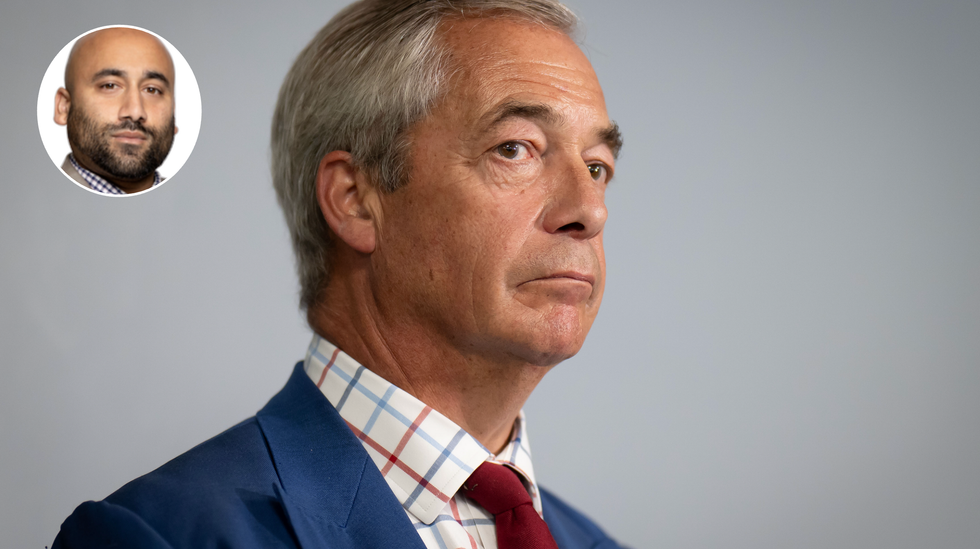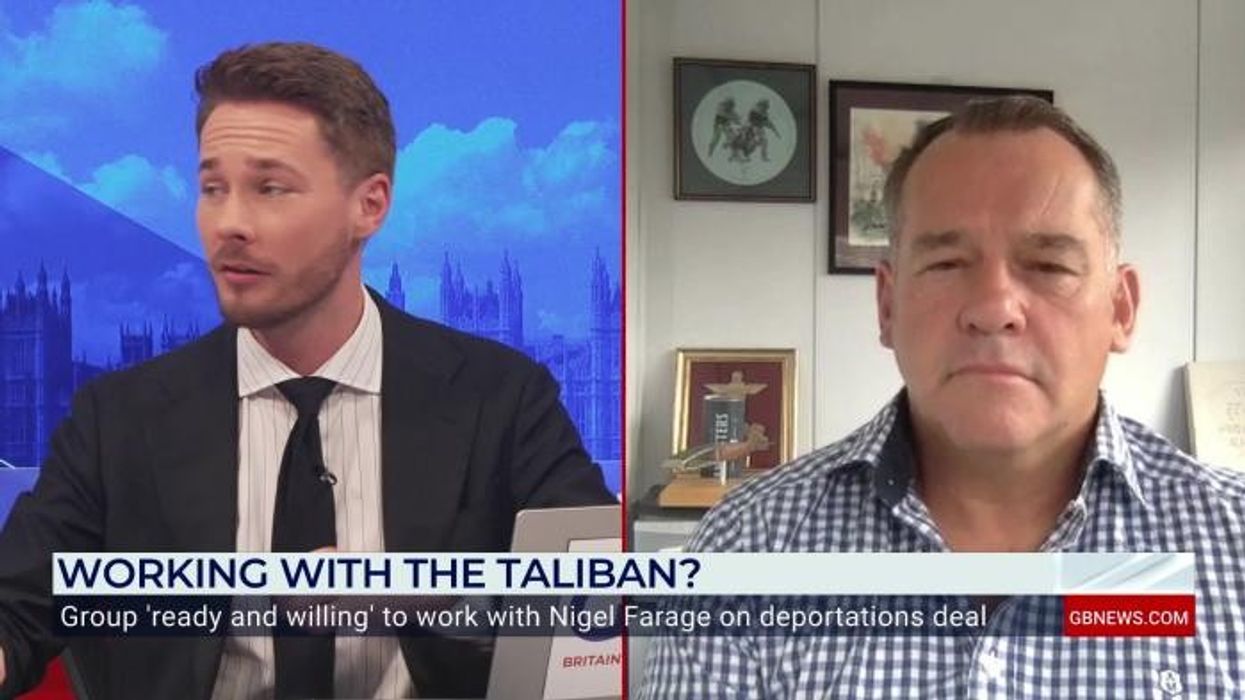Nigel Farage vows to reverse Britain's betrayal of women's safety. But he has one blind spot - Rakib Ehsan
Northern Ireland must not be treated as an afterthought by any Westminster government’s efforts to tackle the small boats crisis
Don't Miss
Most Read
Trending on GB News
Yesterday, Reform UK leader Nigel Farage launched ‘Operation Restoring Justice’ – a plan that would bar anyone from claiming asylum if they arrived in the UK by crossing the English Channel on a small boat, along with striking agreements with prominent countries of origin so that those people are deported and returned.
Suggesting that a future Reform UK government would be prepared to deport 600,000 migrants over a five-year period if it wins the next general election, Farage has set out a strategy to detain and deport all migrants who enter these islands without permission.
This includes a pot of £2billion for returns deals, which could see the UK Government offer payments or development aid to countries such as Afghanistan and Eritrea (with sanctions potentially imposed on uncooperative nations).
There is no doubt that the current situation is not remotely sustainable when it comes to Britain’s refugee policy.
The UK’s asylum system has been completely overwhelmed by the sheer scale of illegal migration through the English Channel, with Sir Keir Starmer recently reaching the unwanted milestone of 50,000 small-boat migrants breaching England’s south coast under his watch as prime minister.
Recent immigration data showed that from January to June 2025, seven in ten of the nearly 20,000 small-boat migrants who arrived in the UK – unpermitted – were men aged 18 to 39 years.

Nigel Farage vows to reverse decades of disregarding women's safety. But he has one blind spot - Rakib Ehsan
|Getty Images
The small-boats emergency is largely centred on the unregulated importation of single unattached males from rigidly patriarchal societies. Illegal migration is now a fundamental threat to female public safety in Britain.
Therefore, Reform UK’s pledge to extricate the UK from the ECHR and scrap the 1998 Human Rights Act (HRA) in favour of a ‘British Bill of Rights’ is completely understandable – indeed, it will be music to the ears of many.
However, leaving the ECHR comes with both political and legal risks. Firstly, it would breach the Good Friday (Belfast) Agreement, which forms the basis of Northern Ireland’s devolved power-sharing system of government between Irish Catholic nationalists/republicans and Ulster Protestant unionists/loyalists.
Avoiding a repeat of what unfolded over Brexit, Northern Ireland must not be treated as an afterthought by any Westminster government’s efforts to tackle the small-boats crisis.
Excluding Northern Ireland from any new British Bill of Rights, which replaces the HRA, is also not an option as it risks creating a ‘two-speed system’ of rights in the UK.
It is also worth noting that the HRA forms an integral part of the devolution settlement in both Scotland and Wales. Such a radical – perhaps reckless - shake-up of the UK’s constitutional order could be seriously destabilising for the Union.
One alternative to avoid the political opposition and legal risks that are likely to come with an attempted withdrawal from the ECHR is passing primary legislation which clearly defines illegal immigration as entering the UK without official permission (disapplying relevant sections of HRA and international treaties such as the 1951 Refugee Convention).
This includes the disapplication of the international legal principle of ‘non-refoulement’, which currently prohibits the UK from returning individuals to a country where they face risk of persecution, torture, or other irreparable harm.
Exceptions can be granted on a discretionary basis, especially for pro-Western female political dissidents, educators, and journalists who are members of ethno-religious minorities in conflict zones - subject to ministerial approval. This would be the right blend of compassion and control – in other words, sensible generosity.
The UK needs a human-rights framework which has the collective security of British citizens at the heart of it – not one that seemingly prioritises the individual rights of foreign nationals, even those who break the law. But practical and workable measures, rooted in political and legal reality, hold the key.











